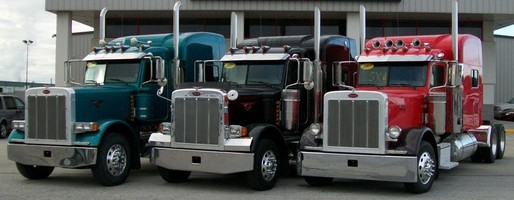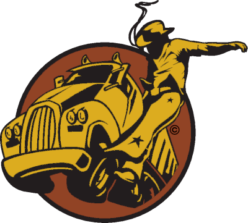
You might be very surprised to find what is NOT covered that you think you have coverage for & what is required of you to avoid a claim being denied or your insurance being canceled!
In the majority of my insurance articles you may have noticed an underlying theme. The need to understand our insurance policy. All to often, we, including myself before I became an insurance agent, simply assume we know what we have for insurance or we accept and believe our insurance agent has told us everything we need to know about our policy. Assuming is always a bad idea. Especially when it comes to our insurance. Believing our insurance agent has or is even able to disclose all the details of the policy is not realistic either. That leaves us with only one option. We need to read our policy for ourselves.
Will we read our polices? Highly unlikely. As I confessed, before I became an insurance agent, I never read my policies either. So I think it’s very unrealistic to believe anyone else will either (even though everyone should). So if we’re not going to read our policies how about knowing some of what is in our policies so we understand why it is so important to read them. Moreover, I’m going to share some tips to locate certain portions of our polices so we can quickly review anything we may question or want to be certain of.
Commercial Auto Policies:
Terms & Conditions – Policies are not required to (and seldom do they) use the phrase “terms & conditions” or any other variant. Rather, the policy will make statements of fact. For example, in my articles Don’t be lured into dishonesty to reduce your insurance premiums and Deception wreaks havoc … again! the insureds were found to have violated a requirement found in all commercial auto insurance polices with filings I have ever had or provided to a customer. That requirement was to have all owned and/or operated commercial vehicles scheduled on the policy. Another almost certain term & condition is that only drivers who are included or added to the policy are permitted to drive any of the scheduled vehicles. There can be (and frequently are) countless more terms & conditions scattered throughout the policy. Such as driver qualifications, radius of operation, hazmat exclusion, involuntary inspections or audits by the insurance company, equipment standards, equipment exclusions, locations excluded for trucking operations, exclusions for specific commodity types and much, much more.
Scheduled Vehicles – This is a list of all the “autos” (trucks) you shared with the insurance company and are scheduled (listed) on the policy. If you own and/or operated a commercial vehicle and it is not scheduled on the policy it is almost certain you are violating the terms & conditions of the policy and risk a outcome similar to those in the 2 previously mentioned articles.
Drivers – This a list of all the drivers you have disclosed to the insurance company and are on the policy as a driver. It’s not a given that we can add any driver we wish to our insurance policy. On every policy I have had or seen drivers can be approved or rejected by the insurance company. In some rare instances a driver may be listed on the policy but then “excluded” as a driver. One example is a driver who has a less than desirable MVR and yet remains an employee of the company as a dispatcher, mechanic, warehouse worker, etc.
Know the Policy’s Covered Perils – The policy’s list of covered perils determines if the policy will provide coverage in the event of a claim. As I outlined in my last article Not all cargo insurance is created equal if we don’t understand our perils we’ll never actually know if there is coverage. This is true for both the physical damage (comprehensive and collision) of our trucks and trailers and of cargo coverage. Just like with cargo coverage, if the peril which caused the claim is not a covered peril, we the truck owners, may not have physical damage coverage which can result in the cost of repairs being our own responsibility.
Know the Policy’s Coverage Exclusions – Equally as important as knowing what perils are covered we must know which perils are excluded from coverage. In addition to peril exclusions the policy will almost certainly have other exclusions as well. Those other exclusions can be for types of operations exclusions, commodities being hauled exclusions, location of operation exclusions, and countless other possible exclusions. Some polices will have a very small list of exclusions while other policies may have multiple pages of exclusions. If we were to file a claim, including a claim for physical damage of our truck or trailer, and the peril which caused the claim is excluded from coverage or the loss occurred while engaged in an activity that is listed as an exclusion, we the truck owners, once again, may be responsible for the entire cost of the loss (physical damage repair costs).
Motor Truck Cargo Policies:
Verify Cargo Commodities – All to often when we truck owner’s answer the question “what commodities do you haul” we only enter “general freight” on our insurance application or we tell our insurance agents something like “I only haul general freight.” Our insurance agents, as they are required to do, in turn only disclose “general freight” on our application as the commodity we haul. This can cause all kinds of issues, and none of them good.
First, and most important, the commodities we haul can determine if the insurance company will provide us commercial auto insurance (trucking insurance) at all! For example, if we say we only haul “general freight” to the insurance company and our customer or broker files a cargo claim for something specific like televisions or perhaps a racecar there is the possibility that claim may be denied. Why? Because some cargo coverage policies “exclude” (see next paragraph) coverage for “electronics” or “autos” and as such may not provide coverage.
Now what if our customer or broker states that “general freight” was the cargo being hauled when they report the claim to our insurance company? Before a claim is settled, the adjuster is required to investigate. During a claim investigation pictures are almost always required. The adjuster will see that the cargo is televisions or a racecar. Thus, as the adjuster is required to do, the claim will most likely be denied if electronics or autos are excluded. Worse yet, if the insurance company does not insure truck owner’s who haul electronics or autos then our policy can be canceled. That cancellation will appear on our CLUE report as deception (we lied about what we haul) and make it virtually impossible to find commercial auto insurance we can afford.
Know the Cargo Perils – Just like with the commercial auto policy, the policy’s list of covered perils determines if the policy will provide coverage in the event of a claim.
Know the Cargo Exclusions – Cargo exclusions are different than the commercial auto policy’s coverage exclusions. Cargo exclusions specifically identify cargo that is “excluded” from coverage. What cargo is excluded from coverage is entirely up to the insurance provider. Neither our insurance agent or our insurance company is a mind reader. Nor do they have a camera monitoring every load we put in or on our trailers and send us a message that the cargo will not be covered. Knowing what cargo is excluded from coverage within our insurance policy is entirely the responsibility of the insured/policy holder (us truck owners)!
Commercial General Liability Policies:
Business Locations – Commercial general liability (CGL) insurance has a nickname. It’s sometimes referred to as slip and fall insurance. It got that nick name because how common claims are made by the businesses customers or the general public while they on the property for slips and falls. How does that relate to us truck owners? It is not uncommon to forget to tell our insurance agent or our insurance company that we have multiple locations. I believe this is mostly an innocent oversight. However, whether an innocent oversight or not, it can be a costly one.
We provide our business address (which should match our address with the FMCSA) to our insurance company via our application. On that application there will typically be a very long list of questions. Many of them requiring a simple “yes” or “no” answer with possibly a few follow up questions depending on the answer. One of those questions will almost certainly deal with locations. If we do not enter all the locations our business owns, rents or otherwise utilizes for business operations, the insurance company believes that the only location they are providing coverage for is the business address that has been provided.
So if we own an empty lot across the street, a few blocks over or across town where we park our trucks it also can have a slip and fall type of claim. It can happen in many forms. Such as someone simply taking a shortcut through the property and falling down, a tool truck vendor selling tools to a mechanic and falls off a set of stairs, or possibly a mobile mechanic who is is injured while working on the truck owner’s truck or trailer. Any of these examples can result in an incident that could result in a claim against a CGL policy. If we do not include this parking lot then any claim from an incident that occurred on the parking lot property may be denied and we could be sued. Then, if found liable by the court, be responsible for entire amount of the court decision.
Know the Policy’s Covered Perils – Just like with the commercial auto policy and cargo policy perils, the policy’s list of covered perils determines if the policy will provide coverage in the event of a claim.
Know the Policy’s Coverage Exclusions – Again, just like with the commercial auto policy and cargo policy exclusions, we must know which perils are excluded from coverage. Besides peril exclusions there will almost certainly be other exclusions you might be surprised to find within your CGL policy. Exclusions such as “total auto exclusion,” “care, custody and control exclusion,” “hired and/or nonowned auto exclusion,” “designated operations or activities exclusion,” and many, many more possible exclusions. Every policy will have exclusions.
Those are just brief summaries of the most common mis-understandings we truck owners have about our insurance policies. I get all kinds of far more complex insurance questions that can only be answered after a very careful reading of the policy. And even then, sometimes the answer can only be provided by the insurance company itself.
The fastest way I know of to learn if a peril is covered, if something specific is excluded or any other detail of a policy is to request a .pdf copy of the policy and perform a key word or phrase search. I prefer to search for the heading such as “Perils,” “Exclusions” or “Auto.” If for example, I search for “Exclusions” I will read the entire list of exclusions completely and carefully including all the details for each exclusion. Only then can I understand every exclusion of the policy I am reading.
To get more great business tips and trucking news visit Overdrive extra!![]()
